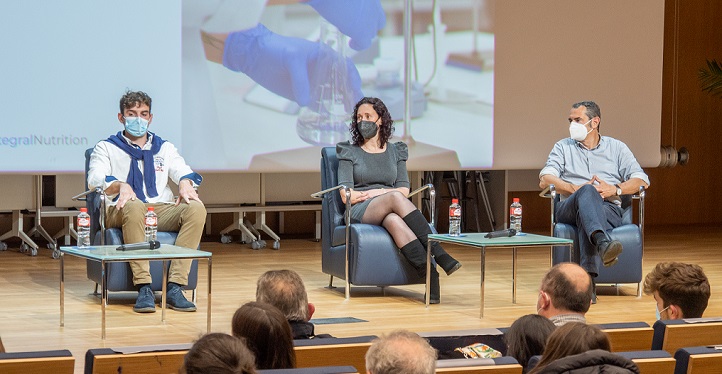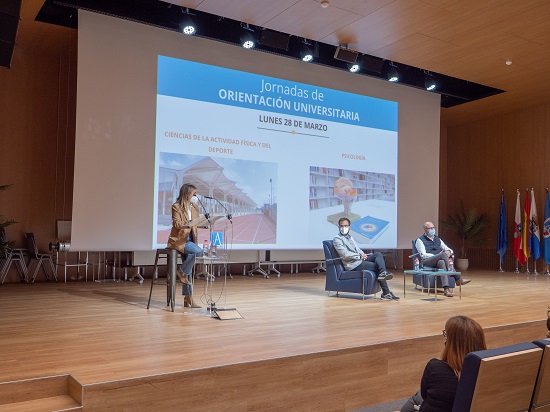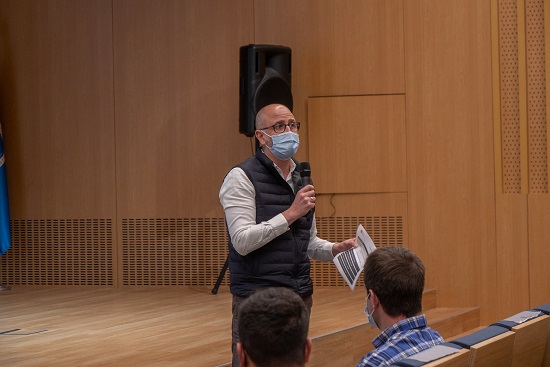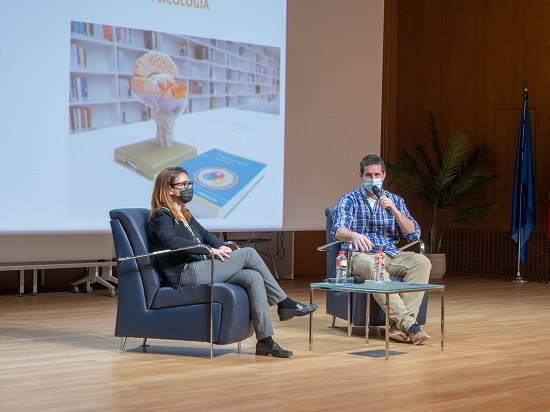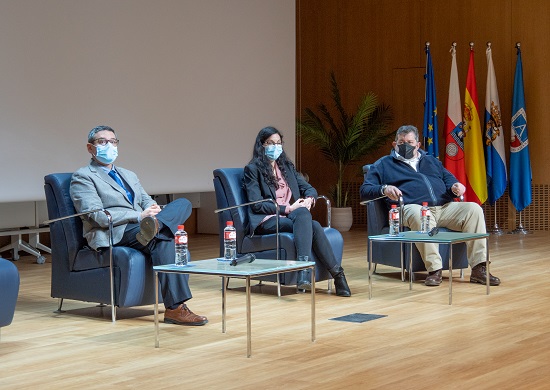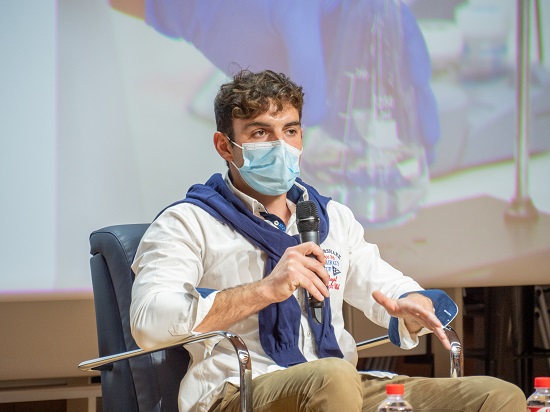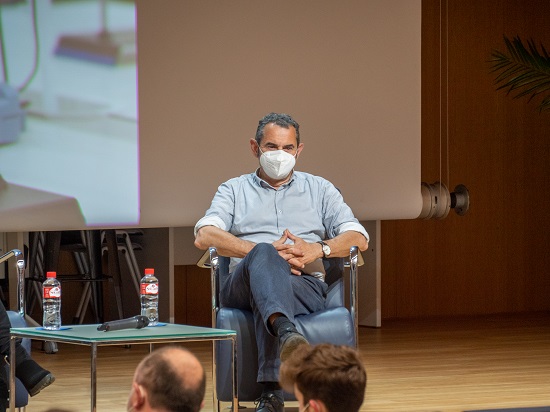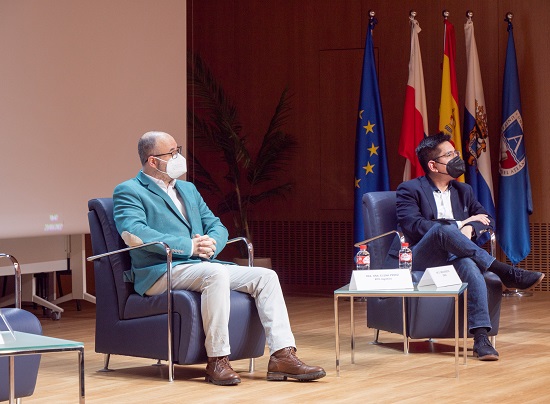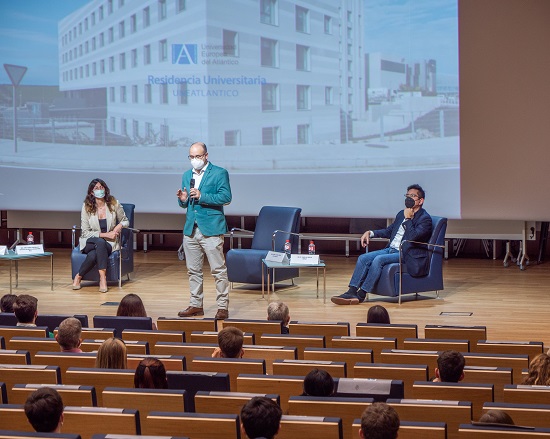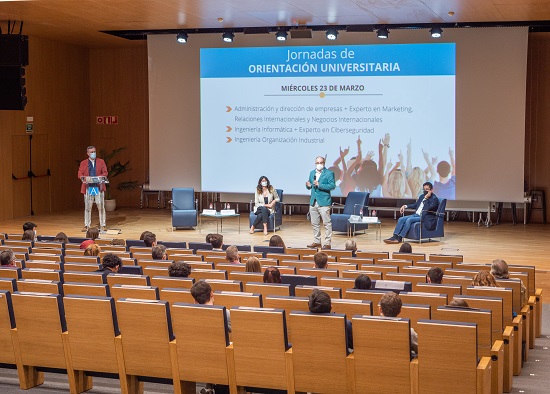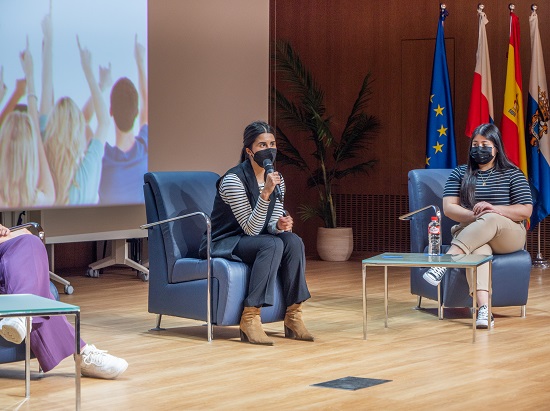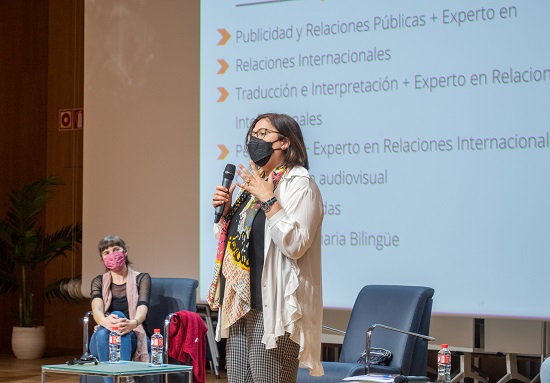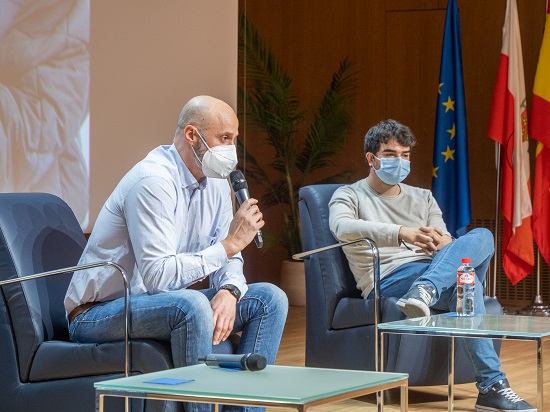The first edition of the University Orientation Days, which were held on campus in four sessions over two weeks, offered an interesting perspective on the degree courses that make up the institution’s academic offer. The way in which the programme was set up allowed the participants to have a triple look at them, as they were given a series of opinions and advice shared by the academic directors, some professionals from the sector and a group of graduates who studied at UNEATLANTICO.
The first session brought together the degrees in Business Administration and Management, Industrial Management Engineering and Computer Engineering, and the respective academic directors – Doctors Silvia Aparicio, Jorge Crespo and Manuel Masías – described the particularities of the studies they direct and emphasised some useful ideas about the work that is carried out in the classrooms, as well as the main job opportunities that these degrees provide. Dr Aparicio referred to what companies demand today when it comes to hiring staff, “that they not only master the contents of the degree, but that they know languages, that they are able to develop projects and communicate them, that they can debate, that they have critical thinking, that they can adapt to the problems they face,… For this reason we not only train our students in practical contents but also in soft skills”. For his part, Dr. Crespo stressed that “at the University you come not only to acquire knowledge but also to establish contacts, work on projects, but above all to make the most of your time and grow professionally”. In addition, Dr. Masías highlighted “the methodological contribution of the University. One cannot remain in the technical part, nor in the executive part, but must also evolve towards a managerial part”.
The professionals invited to this first day were Manuel Huerta (President of Oxital), Rosa Castrillo (HR Director of Global Steel Wire), Elena Pérez Suarez (XPO Logistics) and Carlos Recio (IDRUS). In addition, graduates who studied at UNEATLANTICO and are already professionals, such as Ana Villalba, Sol Torralba, Alberto Bolado and Ruth Cortez, also took part in the event.
The second session reviewed the degrees related to languages (Translation and Interpreting and Applied Languages), communication (Journalism, Audiovisual Communication and Advertising and Public Relations), as well as Primary Education. The first to speak were the academic heads, Dr Araceli Alonso, Dr Laura García and Professor Alejandro Sanz. Later, Gerardo Sisniega, Director of News for the COPE Cantabria Group, Daniel Díez, associate lecturer at the University of Cantabria and also at the Official Language School, and Cristina Ruiz García, Primary School teacher, took the floor. The session was completed by UNEATLANTICO graduates Ángela Caloca (Cantabria Government Communication Department), Alba González (CISE) and Laura Pombo.
CAFYD and Psychology
The degrees in Psychology and Physical Activity and Sport Sciences occupied the third session, which was opened by Dr. Carlos Lago, who recalled the moment when he chose to study CAFYD. “At that time I thought that the most natural career path was to be a Physical Education teacher and, curiously, it is practically the only one that I have not done. In any case, through this degree you are going to improve people’s health, both from the perspective of sports training, from the perspective of high performance, from the treatment of injuries in contact with physiotherapists. There is also an area of management, developing projects. In other words, helping people through movement”. Dr. Juan Luis Martín, for his part, indicated that “psychologists are dedicated to the study of behaviour and intervention in this field. It is a consolidated profession, both academically and scientifically”. Martín stressed that “psychologists do not read minds, we are in a scientific profession in which we try to use the best resources”.
Among the professionals invited to this session were Felipe Suárez, director of EliteTraine and Marisa Garcés, head of the Psychology Department at Clínica Aván. The students’ perspective was provided by Andrea García (graduate in Psychology and master’s degree in Clinical Psychology) and Brandon D. Hoyos (fourth year student of the degree in CAFYD).
Degrees in Food Technology
The final day focused on food technology-related degrees, so that their academic directors, Dr Sandra Sumalla (Food Science and Technology / Gastronomy), Dr Iñaki Elío (Human Nutrition and Dietetics) and Professor Emilio Casuso (Agricultural and Food Industries Engineering) clarified the main differences between each of these specialisations.
Dr Elío began the session by commenting that the degree he directs studies “the bases of biology, chemistry and anatomy, the properties and composition of food, as well as its effects on the organism and its metabolisation. Also the application of this discipline to sport, health and illness. The aim is to develop the capacity for analysis and synthesis, a taste for research and the ability to pay attention, listen and understand”.
The dean of the Faculty of Health Sciences, Dr. Sumalla, indicated that the degree in Food Science and Technology focuses on “knowing the composition of food and the causes of its deterioration, designing better production, preservation and packaging systems, achieving higher quality food, etc.” With regard to the degree in Gastronomy, he stressed that “it provides a scientific basis for understanding culinary fundamentals”. For his part, Professor Emilio Casuso referred to the degree in Agricultural and Food Industry Engineering, “a regulated profession. We are dedicated to assisting agricultural producers, i.e. the primary sector, in the design to treat the raw materials that are then transformed into food”.
Ana Amo (Amo Nutrition Expert), Javier Gómez (Nestlé Purchasing Manager) and Manuel Martínez Prat, NHD graduate and founder of Integral Nutrition, also took part in the session. Also speaking were graduates Álvaro Aja (NHD), Ana Pinta (double degree in NHD and CTA), Victoria Pantaleón (IIAA) and Carlota Anaya, who is studying a double degree in NHD and CTA.


